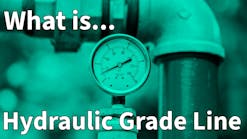PARIS, France, March 19, 2010 -- Encouraging people to waste less, pollute less and invest more in water infrastructure will require countries to correctly price water, according to the Organisation for Economic Co-operation and Development (OECD).
Three new studies show that households and industry across OECD countries are currently paying the "true cost" for water but tariffs for water and wastewater services very significantly.
Pricing Water Resources and Water and Sanitation Services shows how user prices better reflect the actual consumption and treatment costs, including water abstraction and supply as well as treatment of wastewater to avoid pollution.
Balancing financial, environmental and social objectives in water pricing policies remains a challenge in most OECD countries, the organisation said, highlighting examples of Hungary and Mexico where people on low-incomes sometimes pay over 4% of their disposable income on water and wastewater services.
A second report on the agricultural sector's increasing appetite for water said farmers will need to improve water efficiency if production is going to double by 2050 to feed the growing world population.
Sustainable Management of Water Resources in Agriculture suggests that farmers should pay not only the operation and maintenance costs for water but also their fair share of the capital costs of water infrastructure. It also said that government subsidies for agricultural production can encourage wasteful water use and pollution.
###


